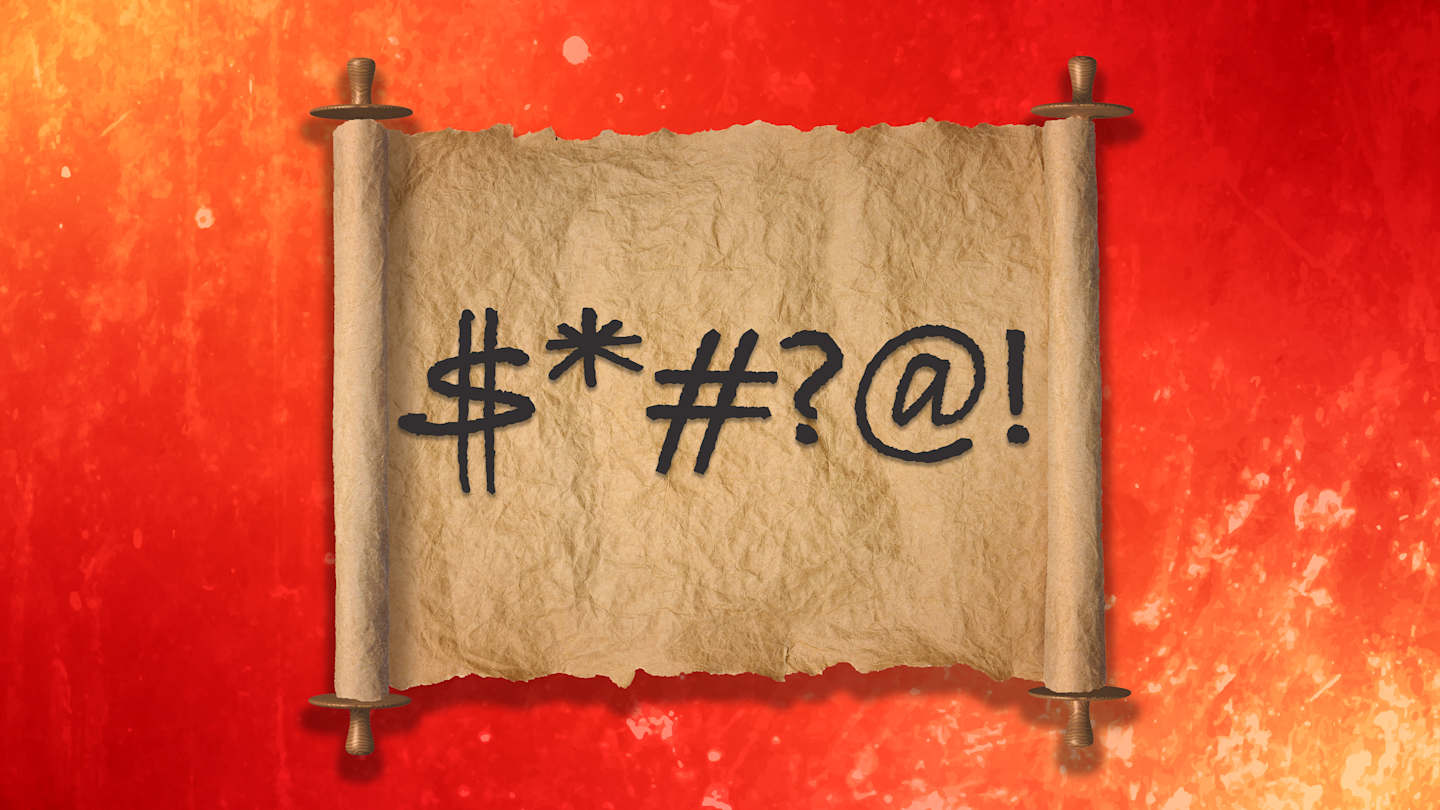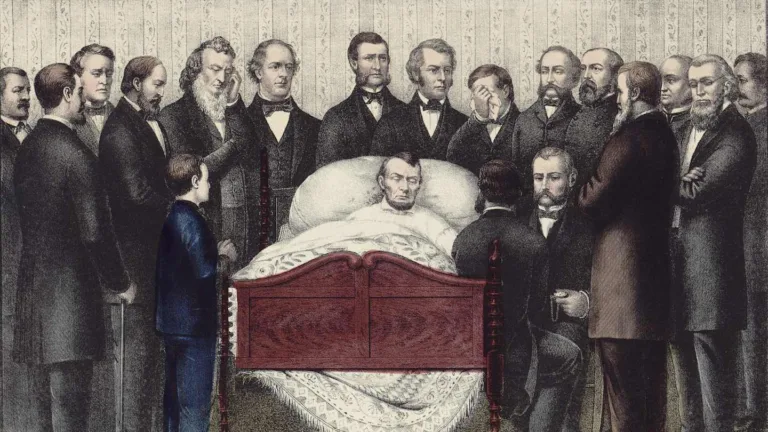The world of swear words is a fascinating one, full of history, Cultural Nuances, and evolving meanings. While we might use them casually today, these potent utterances have deep roots in our language and society. Understanding where they came from can shed light on how we communicate, Express Emotions, and even define ourselves.
One question that often pops up is: what was the first swear word? Pinpointing the absolute earliest curse word is a tricky task. Language evolves constantly, with words gaining and losing meanings Over Time. What might have been considered offensive centuries ago could be commonplace today, or vice versa.
Nevertheless, by delving into historical records and Linguistic Analysis, we can trace the origins of many common swear words back through the ages. This exploration allows us to glimpse Into Past Social Norms, beliefs, and taboos, revealing how our understanding of language and what we deem “acceptable” Has Changed Over Time.
The Evolution of Early Swear Words
Tracing the evolution of early swear words is like piecing together a puzzle with missing pieces. Many words we consider taboo today Likely Had More Innocent Origins. For example, the word “shit” originally referred to diarrhea in Old English medical texts. Over time, its meaning shifted to encompass waste and eventually became associated with vulgarity. This transformation reflects how language adapts to societal changes and evolving perceptions of what is considered appropriate.
Another fascinating example is the word “fuck.” While it’s now widely recognized as a potent Curse Word, its earliest recorded uses suggest a More Complex History. A coded insult from 1310 named Roger Fuckebythenavele hints at its Potential Existence Even Then. A poem from around 1500 also suggests the word was used as a verb before becoming officially recorded in the OED as an interjection expressing strong emotions in 1929. This gradual shift demonstrates how words acquire new layers of meaning and Intensity Over Time.
The evolving nature of swear words highlights the dynamic relationship between language, culture, and social norms. What might have been considered shocking or offensive centuries ago may be Commonplace Today, while new curse words constantly emerge reflecting contemporary concerns and sensibilities.
Beyond Derogatory Meanings: Ancient Uses of Cuss Words
While swear words often carry negative Connotations Today, it’s fascinating to discover that some of them were used in seemingly innocuous ways in ancient times. Words that we now associate with vulgarity might have served different purposes Centuries Ago. For instance, “shit,” As Previously Mentioned, originally referred to diarrhea in Old English medical texts. This suggests that the word wasn’t necessarily considered offensive at that time, but rather a neutral term for a bodily function.
Similarly, certain curse words may have been employed in ancient rituals or ceremonies with symbolic meanings. Some scholars believe that what was the first cuss word might have originated from religious contexts, where strong language was used to invoke powerful deities or spirits. This suggests that early swear words weren’t solely about expressing anger or disgust but could also hold spiritual or social significance within their respective cultures.
The evolution of language is a Complex Process, and understanding the historical context of curse words can provide valuable insights into how societies have viewed taboo subjects, Bodily Functions, and the power of language itself.
 Examples of Code Words: Historys Secret Language
Examples of Code Words: Historys Secret LanguageTracing the Origins: cunt and fuck in History
The words “cunt” and “fuck” stand out as particularly potent examples of curse words with rich and Complex Histories. Both have been used for centuries, carrying layers of meaning that have Shifted Over Time.
The word “cunt,” appearing in the 14th century, initially referred to female genitalia but its exact meaning was somewhat unclear. By the 17th century, it had firmly established itself as Coarse Slang. The evolution of this word reflects Changing Social Attitudes Towards Women’s bodies and language used to describe them. Similarly, “fuck” holds a fascinating history. Its use as a verb referencing sexual intercourse dates back to its Earliest Recorded Instances. A coded insult from 1310 named Roger Fuckebythenavele even hints at the word’s potential existence before being officially recorded as an interjection expressing strong emotions in 1929 by the OED.
This journey through time reveals how Words Like “cunt” and “fuck,” initially linked to specific bodily functions or actions, have morphed into powerful curse words Reflecting Societal Taboos, Power Dynamics, and evolving notions of what is Considered Acceptable Language.
From Insult to Interjection: The Rise of ‘Fuck’
The word “fuck” has undergone a remarkable transformation throughout history, evolving from a term with specific meanings to a versatile curse word Used Across Various Contexts. Its journey is a testament to the ever-changing nature of language and how words can acquire new layers of Meaning Over Time.
Initially, “fuck” Primarily Referred To Sexual Intercourse. This usage dates back to its Earliest Recorded Instances, suggesting it held a more straightforward and literal meaning in earlier centuries. However, as societal attitudes towards sex and Language Evolved, “fuck” broadened its scope beyond its initial definition.
It started appearing as an interjection Expressing Strong Emotions, ranging from anger and frustration to excitement and surprise. This shift from a verb describing a specific act to a more general expression of feeling marked the word’s transition into the powerful curse We Know Today. The fact that what was the first cuss word could be a sexual term initially highlights how cultural norms and evolving attitudes can reshape the impact and usage of words Over Time.
The Enduring Power Of Language
The study of swear words reveals a fascinating truth about human language: its power to evoke strong emotions and shape social interactions. Even though these words often carry Negative Connotations, their enduring presence in our vocabulary Speaks Volumes About Their Effectiveness.
Think about it – a well-placed curse word can express frustration, anger, or surprise with greater intensity than Any Polite Euphemism. It cuts through the noise and conveys raw emotion in a way that resonates deeply with others. This power stems from the fact that swear words tap into primal instincts and cultural taboos, triggering visceral reactions in those who Hear Them.
Ultimately, the enduring power of language, especially when it comes to curse words, highlights its ability to both unite and divide us. It reflects our shared human experiences – the joys, frustrations, and everything in between – and reminds us that even seemingly taboo topics can hold valuable insights into the complexities of human nature.










